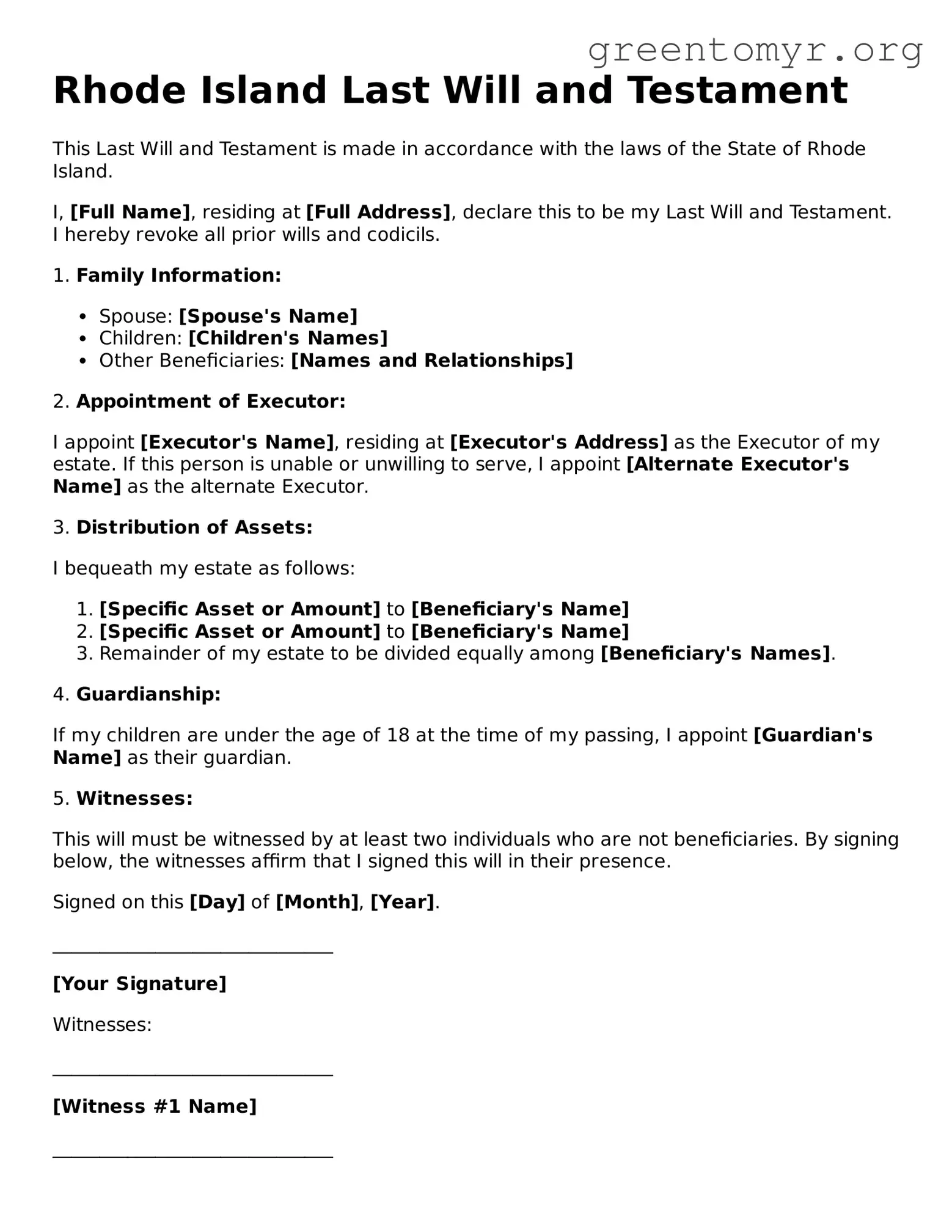Rhode Island Last Will and Testament
This Last Will and Testament is made in accordance with the laws of the State of Rhode Island.
I, [Full Name], residing at [Full Address], declare this to be my Last Will and Testament. I hereby revoke all prior wills and codicils.
1. Family Information:
- Spouse: [Spouse's Name]
- Children: [Children's Names]
- Other Beneficiaries: [Names and Relationships]
2. Appointment of Executor:
I appoint [Executor's Name], residing at [Executor's Address] as the Executor of my estate. If this person is unable or unwilling to serve, I appoint [Alternate Executor's Name] as the alternate Executor.
3. Distribution of Assets:
I bequeath my estate as follows:
- [Specific Asset or Amount] to [Beneficiary's Name]
- [Specific Asset or Amount] to [Beneficiary's Name]
- Remainder of my estate to be divided equally among [Beneficiary's Names].
4. Guardianship:
If my children are under the age of 18 at the time of my passing, I appoint [Guardian's Name] as their guardian.
5. Witnesses:
This will must be witnessed by at least two individuals who are not beneficiaries. By signing below, the witnesses affirm that I signed this will in their presence.
Signed on this [Day] of [Month], [Year].
______________________________
[Your Signature]
Witnesses:
______________________________
[Witness #1 Name]
______________________________
[Witness #2 Name]
